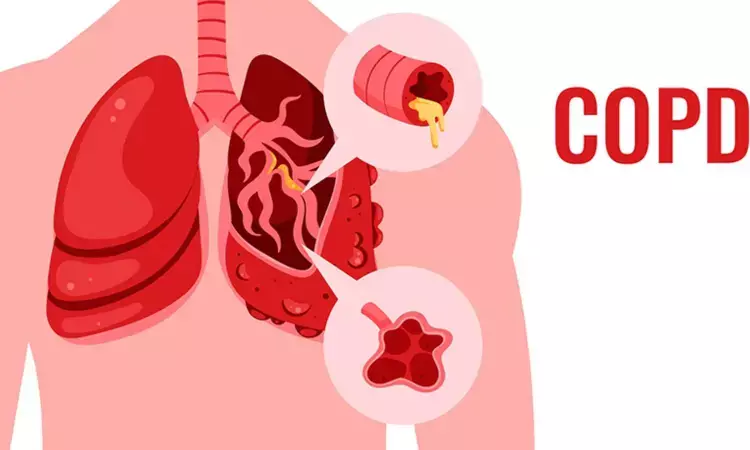- Home
- Medical news & Guidelines
- Anesthesiology
- Cardiology and CTVS
- Critical Care
- Dentistry
- Dermatology
- Diabetes and Endocrinology
- ENT
- Gastroenterology
- Medicine
- Nephrology
- Neurology
- Obstretics-Gynaecology
- Oncology
- Ophthalmology
- Orthopaedics
- Pediatrics-Neonatology
- Psychiatry
- Pulmonology
- Radiology
- Surgery
- Urology
- Laboratory Medicine
- Diet
- Nursing
- Paramedical
- Physiotherapy
- Health news
- Fact Check
- Bone Health Fact Check
- Brain Health Fact Check
- Cancer Related Fact Check
- Child Care Fact Check
- Dental and oral health fact check
- Diabetes and metabolic health fact check
- Diet and Nutrition Fact Check
- Eye and ENT Care Fact Check
- Fitness fact check
- Gut health fact check
- Heart health fact check
- Kidney health fact check
- Medical education fact check
- Men's health fact check
- Respiratory fact check
- Skin and hair care fact check
- Vaccine and Immunization fact check
- Women's health fact check
- AYUSH
- State News
- Andaman and Nicobar Islands
- Andhra Pradesh
- Arunachal Pradesh
- Assam
- Bihar
- Chandigarh
- Chattisgarh
- Dadra and Nagar Haveli
- Daman and Diu
- Delhi
- Goa
- Gujarat
- Haryana
- Himachal Pradesh
- Jammu & Kashmir
- Jharkhand
- Karnataka
- Kerala
- Ladakh
- Lakshadweep
- Madhya Pradesh
- Maharashtra
- Manipur
- Meghalaya
- Mizoram
- Nagaland
- Odisha
- Puducherry
- Punjab
- Rajasthan
- Sikkim
- Tamil Nadu
- Telangana
- Tripura
- Uttar Pradesh
- Uttrakhand
- West Bengal
- Medical Education
- Industry
Novel PDE3 and PDE4 inhibitor ensifentrine significantly improves lung function in COPD patients

USA: Ensifentrine, a novel PDE3 and PDE4 inhibitor, could be a valuable and complementary addition to the limited available treatment mechanisms for COPD (chronic obstructive pulmonary disease) patients. The study was published in the American Journal of Respiratory and Critical Care on June 26, 2023.
Ensifentrine is a novel, selective, dual phosphodiesterase (PDE)3 and PDE4 inhibitor with anti-inflammatory and bronchodilator effects.
Chronic obstructive pulmonary disease is characterized by progressive, partially reversible airflow obstruction, chronic inflammation, airway remodelling, and excessive mucus production, leading to daily symptoms and exacerbations affecting the quality of life.
The current standard of care treatments for COPD consists of the same therapy classes for over 40 years, including inhaled corticosteroids and inhaled short- and long-acting bronchodilators (i.e., β2-agonists and muscarinic antagonists). The objectives of the ENHANCE program were to evaluate ensifentrine efficacy on lung function, quality of life, symptoms, and exacerbations in symptomatic patients with moderate to severe COPD.
Replicate Phase 3 trials of nebulized ensifentrine were conducted (ENHANCE-1 and ENHANCE-2) to evaluate these effects in COPD patients. In both trials, Ensifentrine significantly improved lung function, with results supporting risk reduction and exacerbation rate in a broad COPD population and in addition to other classes of maintenance therapies.
Antonio Anzueto, University of Texas Health Science Center, Pulmonar/critical care, San Antonio, Texas, United States, and colleagues aimed to evaluate the efficacy of ensifentrine compared to placebo on quality of life, symptoms, lung function, and exacerbations in COPD patients.
For this purpose, they conducted randomized, multi-centre, parallel-group, double-masked, placebo-controlled trials between 2020 and 2022 across 17b countries involving 250 research centres/pulmonology practices. The trial enrolled patients 40-80 years with moderate/severe, symptomatic COPD.
The authors reported the following findings:
- 760 (ENHANCE-1) and 789 (ENHANCE-2) patients were randomized and treated, with 69% and 55% taking concomitant LAMA or LABA, respectively.
- Post-bronchodilator FEV1 was 52% and 51% of predicted normal.
- Ensifentrine treatment significantly improved average FEV1 AUC0-12h vs placebo (ENHANCE-1: 87mL; ENHANCE-2: 94mL).
- Ensifentrine treatment significantly improved symptoms (E-RS) and quality of life (SGRQ) vs placebo at Week 24 in ENHANCE-1 but not ENHANCE-2.
- Ensifentrine treatment reduced the rate of moderate/severe exacerbations vs placebo over 24 weeks (ENHANCE-1: RR=0.64; ENHANCE-2: RR=0.57) and increased time to first exacerbation (ENHANCE-1: HR=0.62; ENHANCE-2: HR=0.58).
- Adverse event rates were similar to placebo.
These findings indicate that ensifentrine, with a novel PDE3 and PDE4 inhibition mechanism, would be a valuable and complementary addition to the limited available treatment mechanisms for patients with COPD," the authors concluded.
Reference:
Anzueto A, Barjaktarevic IZ, Siler TM, Rheault T, Bengtsson T, Rickard K, Sciurba F; ENHANCE investigators. Ensifentrine, a Novel PDE3 and PDE4 Inhibitor for the Treatment of COPD: Randomized, Double-Blind, Placebo-controlled, Multicenter, Phase III Trials (The ENHANCE Trials). Am J Respir Crit Care Med. 2023 Jun 26. doi: 10.1164/rccm.202306-0944OC. Epub ahead of print. PMID: 37364283.
Dr Kamal Kant Kohli-MBBS, DTCD- a chest specialist with more than 30 years of practice and a flair for writing clinical articles, Dr Kamal Kant Kohli joined Medical Dialogues as a Chief Editor of Medical News. Besides writing articles, as an editor, he proofreads and verifies all the medical content published on Medical Dialogues including those coming from journals, studies,medical conferences,guidelines etc. Email: drkohli@medicaldialogues.in. Contact no. 011-43720751


